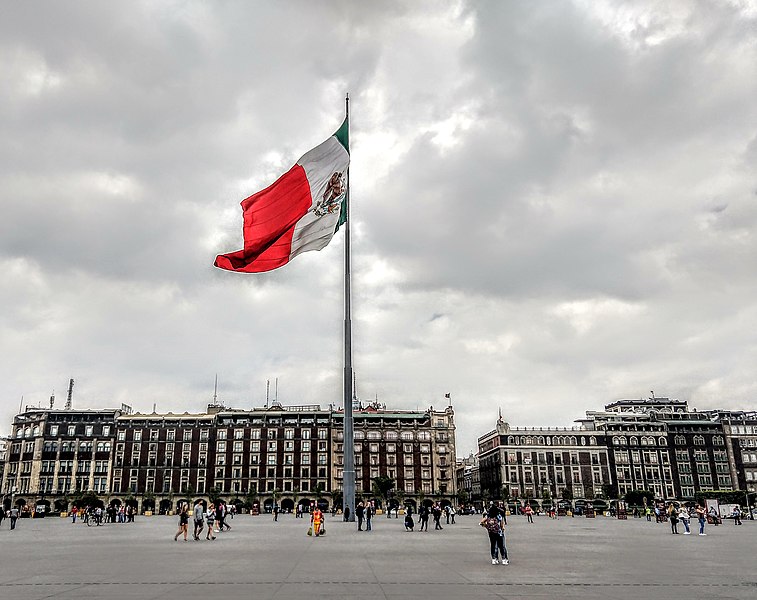Mexico: How Far Have its Institutions Really Come?
The question remains if Mexico has achieved a degree of institutional development consistent with its participation in those organizations.
Introduction (Nathaniel Parish Flannery, Forbes): Mexico is suffering from a number of challenges right now. Some are external, such as threats from Trump to impose tariffs on Mexico's exports, but others are self-inflicted. Mexico's new president, a controversial but charismatic populist named Andres Manuel Lopez Obrador, has made energy sovereignty the centerpiece of his administration's wide-ranging agenda. Lopez Obrador, who is known in Mexico by his initials, AMLO, wants to re-build the country's beleaguered parastatal energy giant Pemex and construct a multi-billion dollar refinery in his home state of Tabasco. Foreign analysts are skeptical. Most recently Fitch downgraded Pemex's bonds to a junk rating. Pemex will need to prove the viability of AMLO's plans while meeting a tough schedule of debt repayment. Right now Pemex's debt totals $106 billion. It is the most indebted oil company in the world. Pemex reported a loss of $7.6 billion in 2018 and oil production in Mexico is currently at a fifteen year low. Additionally, foreign investors are concerned about AMLO's efforts to politicize key regulatory commissions in the energy sector, installing allies in top positions. AMLO also appears intent to roll back some of the private-sector friendly changes Mexico implemented in a historic energy reform in 2013. Finally, companies in the renewable energy sector are still waiting to see whether or not AMLO's administration will incentivize wind and solar projects. To find out what's ahead for Mexico's energy sector, I reached out to Lisa Viscidi, the Director of the Energy, Climate Change, and Extractive Industries program at the Inter-American Dialogue, a Washington D.C. based think-tank. (Piensa gracias.)
Nathaniel Parish Flannery: Overall, what are President Andres Manuel Lopez Obrador's priorities when it comes to the energy sector?
Lisa Viscidi: AMLO’s energy policy centers around what he calls “energy sovereignty,” which seems to imply a goal of independence from energy imports and a more state-led approach to development of Mexico’s energy resources. He has indefinitely canceled new auctions for oil exploration and production contracts, which were created as a mechanism to bring in private investment under the energy reform. His government has vowed to decrease the heavy tax burden for Pemex, the world’s most indebted oil company, to allow it to boost upstream investments. He aims to increase oil production to 2.5 million barrels per day compared to 1.6 million barrels per day currently. I think, however, that this target is unrealistic without more private sector investment. AMLO also said he hopes to see an increase in natural gas production in order to reduce imports of gas from the United States. Mexico depends on US imports for 60% of its gas consumption. However, it will be difficult to reduce this dependence without raising power generation costs as US gas is among the cheapest in the world and much of the pipeline infrastructure is already in place. In the refining sector, AMLO plans to upgrade Mexico’s six existing refineries to increase their utilization rates from 35% to 90%. Pemex also has started the tender process to build a new 340,000 barrels per day refinery in AMLO’s home state of Tabasco. The goal here is to reduce dependence on fuel imports from the United States as US exports supply over half of Mexico’s gasoline consumption. However, the new refinery is a very costly project. Current estimates are close to $8 billion and analysts believe it could end up costing twice that much. The project will divert funds from the more profitable exploration and production business and has been heavily criticized by credit rating agencies who are threatening to downgrade Pemex bonds to junk status. Overall, the government’s energy strategy is based on idealogical goals rather than sound economics.
The question remains if Mexico has achieved a degree of institutional development consistent with its participation in those organizations.
Focusing on transnational crime is a top priority of the Obama administration’s policy in Latin America.
As global temperatures continue to rise with the global community stalled on any way to stop them, countries must prepare to adapt to increasingly volatile environmental conditions.
 DenyDenisse / Wikimedia Commons / CC BY-SA 4.0
DenyDenisse / Wikimedia Commons / CC BY-SA 4.0